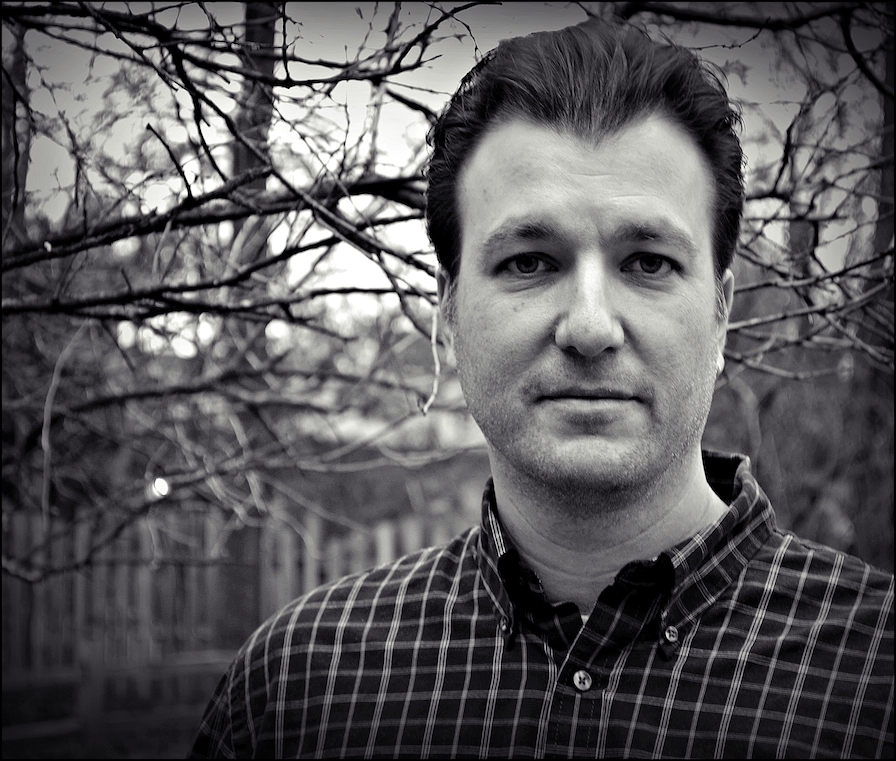Voices of the Middle West presents: Jeff Vande Zande
In the lead-up to Voices of the Middle West on March 22, 2014, we’ll be presenting short interviews with the acclaimed panelists on our Author Panel.
**
 Jeff Vande Zande teaches fiction and screenwriting at Delta College. His most recent book is a novel entitled American Poet, which won the Stuart and Vernice Gross Award for Excellence in Writing by a Michigan Author and a Michigan Notable Book Award from the Library of Michigan. He maintains a website at www.jeffvandezande.com.
Jeff Vande Zande teaches fiction and screenwriting at Delta College. His most recent book is a novel entitled American Poet, which won the Stuart and Vernice Gross Award for Excellence in Writing by a Michigan Author and a Michigan Notable Book Award from the Library of Michigan. He maintains a website at www.jeffvandezande.com.
Midwestern Gothic: What’s your connection to the Midwest?
Jeff Vande Zande: I was born in Michigan’s Upper Peninsula, which in some ways is its own geographic location somewhat separated from the Midwest…or at least that’s what the mythology of the U.P. would have us believe. My childhood travels never took me out of the Midwest. Mainly we traveled into Wisconsin to visit relatives or to visit the metropolis of Green Bay. I finally left the U.P. for grad school, but that too found me in the flatness of middle Illinois…still Midwest. After grad school, I came back to live in Michigan’s Lower Peninsula, where I’ve been for the last 18 years.
MG: Where did your first spark of interest in literature come from?
JVZ: My father, John Vande Zande, was a writer. I distinctly remember that on Saturday mornings we kids had to be quiet because Dad was working on his “stories.” Such an odd childhood. For a long time, I figured that’s what all fathers did; they wrote stories on Saturday mornings. It was later that I would learn that my father was afflicted with something unique and damnable. As a child, wanting to be like him, I wrote little stories of my own. Then, in high school, wanting to rebel, I stopped writing and more or less stopped reading. In college, I couldn’t escape my love of words, but since my father didn’t write poetry, that’s what I did. By my late twenties, I was writing short stories and proving that even rebellious apples don’t fall very far from the tree.
MG: How important/significant do you feel the Midwest identity is?
JVZ: For the sake of the conference, I should probably answer, “very important.” I really don’t know. Important to what? Significant to what? It might be one of the least fleshed-out identities. There’s the Southern identity, the Western identity, the East Coast identity, the Appalachian identity, the Alaskan identity…which all seem more distinctly drawn, though subject, too, to stereotypes. The Midwest identity seems more a hodge-podge. Do we even agree upon which states are considered to be part of the Midwest? It encompasses so much space, and so its identity is spread more thin and is, thusly, harder to define. There’s this conference, so I suppose the Midwest identity is important, maybe even by being an enigma.
MG: How do you feel the Midwestern voice is different from other cultures’?
JVZ: I don’t know. I’m not even sure I’m comfortable trying to speak for the Midwestern voice. Do I really even know that voice? I feel confident talking about a Michigan voice, and Michigan is part of the Midwest. I find the Michigan voice to have some distinct accents, metaphorically speaking. Literary Michigan writers seem interested in work, maintaining work, and how our work defines us. We are interested in cities and the decline of cities and the resurrection of cities. We see an elixir in nature. Our characters go north in Michigan. They have their epiphanies up north. They take solace in the fact that north of Saginaw, much of God’s country survives. Do the other states of the Midwest have something equivalent to “going north” in Michigan? I don’t know.
Work, though. I think the nature of how we earn our money is important to the Midwesterner. It’s hard to find a Midwestern book that doesn’t somehow put the main character in conflict with the nature of how he/she earns money. Jobs are tenuous in the Midwest, and so we worry about losing work, too…and so do our literary characters. We take pride in work. We value a “hard day’s work”…maybe in a way that it’s not as valued in other locations?
MG: How does the Midwestern voice come to life in your work?
JVZ: As a writer, I am very interested in work. My characters struggle with finding work, keeping work, and how work defines them. There is the struggle with self-identity and how work can provide that identity and take it away. What does our work mean to us? If work is a universal concern as part of the Midwest voice, then I suppose that’s one of the ways that such a voice comes out in my work. Also, I explore our relationship to nature in my work. My characters are their best selves when they are out in nature, especially if they are fly fishing. They find analogies in nature. They find answers. They sometimes find peace. Is nature part of the Midwest voice? If so, well, then that’s another way that it comes out in my work.
MG: What was the last thing you read, and how was it?
JVZ: I read Gabriel Garcia Marquez’s One Hundred Years of Solitude. It was nice.
I’m just kidding, of course. More than anything, his vast imagination made me wonder why I even bother to write. This book exists, I thought…that should be enough.






